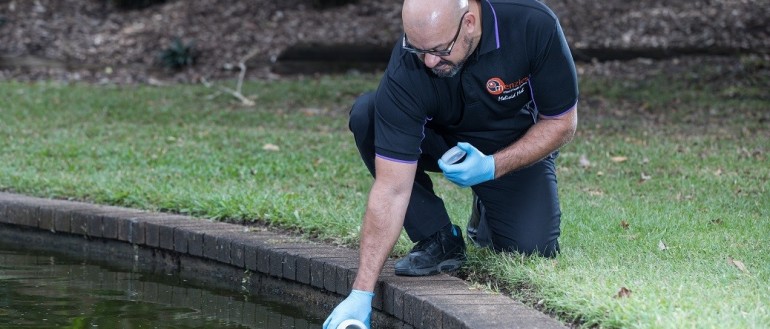30 years of melioidosis study
2019 marked 30 years of the Darwin Prospective Melioidosis Study (DPMS), run by Menzies in collaboration with the Royal Darwin Hospital, which aims to understand the clinical and microbiological aspects of melioidosis in order to optimise the diagnosis and therapy of the disease in the NT.
Melioidosis is a potentially lethal infectious disease predominantly found in tropical regions of the world and is endemic in northern Australia. Between 1989–2019, 1418 individuals have been confirmed with melioidosis in the Top End, with 12 per cent of those cases resulting in death.
To add further value to the DPMS, Menzies’ melioidosis team, through collaborations with overseas colleagues, discovered the environmental niches of the melioidosis-causing bacterium Burkholderia pseudomallei.
he team, led by Professor Bart Currie, has shown that B. pseudomallei evolved in the Australian landscape and subsequently spread to Southeast Asia then Africa and the Americas. With likely links to movement of humans and animals, modelling by the team suggests anthropogenic climate change, along with landscape disruption from development projects, will accelerate the global dissemination of melioidosis.
To learn more about our melioidosis research visit www.menzies.edu.au/melioidosis

